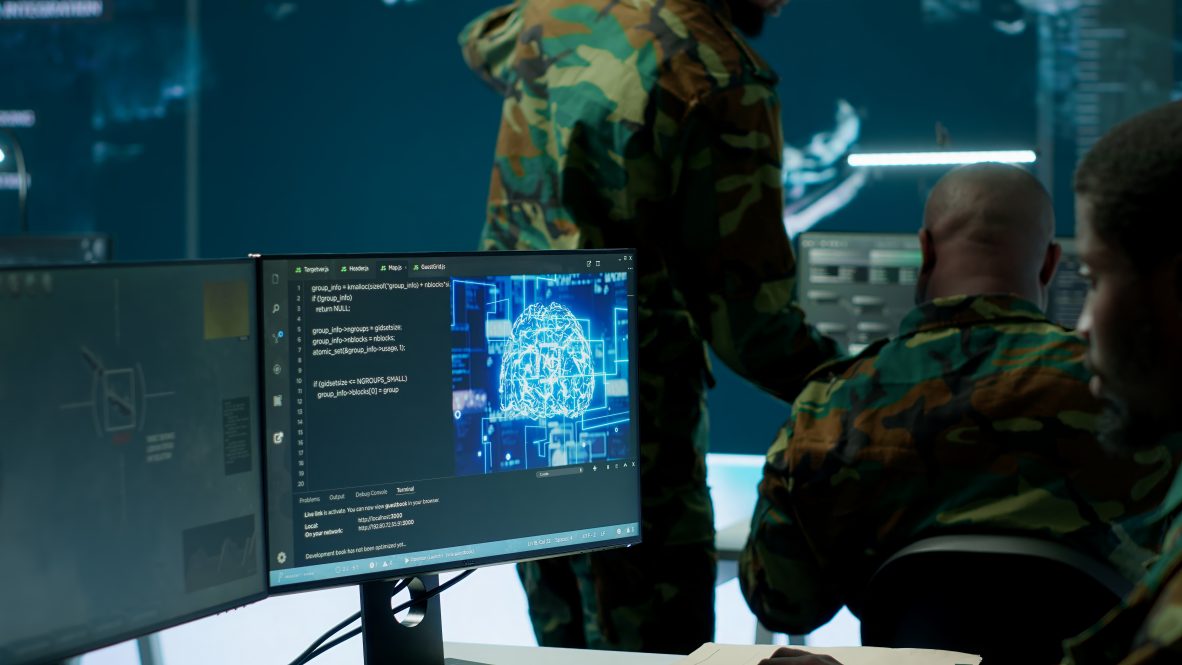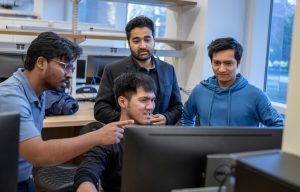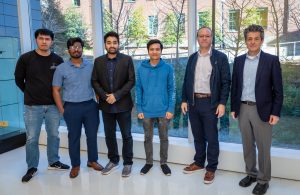UConn's D2REAM Center research activities address vital needs of governmental and industrial entities, all facing challenges integrating digital engineering models into the product-development process

(Photo / Envato stock)
The University of Connecticut's Digital Design Research, Analysis, and Manufacturing (D2REAM) Center has received a second round of funding to continue its work supporting advanced structural digital design and manufacturing, and discovery of novel metamaterials.
The funding is aimed at continuing academic, government, and industry partnerships that are developing groundbreaking modeling and simulation capabilities that can support the next generation of Army ground vehicle systems.
The $5 million in new federal government funding comes from a cooperative agreement with the United States Army Combat Capabilities Development Command (DEVCOM) Ground Vehicle Systems Center (GVSC) in Warren, Michigan. GVSC maintains collaborations with higher education, defense and automotive industry parties to co-develop key ground vehicle technologies.
At the national level, GVSC's research collaborations focus on a wide range of topics, from ground vehicle autonomy to propulsion and virtual prototyping.
The D2REAM Research Center launched within UConn's College of Engineering (CoE) in July 2023. It is focusing on four main areas: advanced structures and materials, advanced manufacturing and processing, AI-driven product development, and design and virtual prototyping of engineered systems.
"The cost and time needed to collect data through physical prototyping is prohibitive, which is where the advanced modeling and simulation tools developed through the D2REAM projects provide a key advantage," says Horea Ilies, professor and director of the School of Mechanical, Aerospace, and Manufacturing Engineering, who leads the center along with Castleman Professor of Engineering Innovation Associate Professor Julián Norato. "These projects drive the next-generation capabilities in advanced structural digital design and manufacturing, and the discovery of materials with extraordinary properties that defy conventional expectations."

Norato says that the first round of research and development involved 11 projects, nine principal investigators (PIs), and included 10 graduate students. The second round will feature 12 projects and 11 PIs, and a similar number of students.
"Research at the D2REAM Research Center provides graduate students with a multi-faceted educational experience," Norato says. "By engaging in groundbreaking projects across advanced structures and materials, AI-driven product development, and advanced manufacturing, students gain practical expertise with technologies transforming the industry. Through close partnerships with our faculty, our Army partners, and industry collaborators, students refine their skills in digital design and manufacturing, and work in multidisciplinary teams."
"Through these experiences," Ilies adds, "and by cultivating technical expertise, innovation, and leadership acumen, graduate students not only expand their technical depth but also acquire the skills required for successful careers in academia and industry."
Ilies says that at the D2REAM Research Center, the research is fundamentally driven by a deep understanding of engineering principles, with a broad spectrum of potential applications spanning consumer, industrial, and defense technologies. Its objective is to formulate and develop novel digital engineering models that will help the Army and the industry as a whole make more accurate performance predictions of their designs, and better engineering decisions, which in turn will further reduce the need to build physical prototypes.
"Integrating digital engineering models into the material development process is crucial to efficiently and quickly deliver capabilities to our fighters," says Dr. David Gorsich, GVSC's chief scientist. "This is true on the government and industry sides, and both need well-trained employees and the best computational design and manufacturing tools.
"When those capabilities don't exist we rely on research done in academia to support us," Gorsich continues. "I am very pleased University of Connecticut is part of our team advancing the state-of-the-art in these areas."
The primary beneficiaries of the D2REAM Center's research activities include a broad spectrum of governmental and industrial entities, all of which face similar challenges in integrating digital engineering models into the product-development process. Advanced simulation tools and digital twins are especially valuable to the aerospace industry in Connecticut, and to the industry at large, as they enable virtual prototyping and model-based systems engineering, reducing the need for physical testing, and accelerating development cycles.

"UConn is home to very strong research ecosystems that build powerful partnerships between academia, government, and industry," says UConn President Radenka Maric. "Industry leaders rely on a talented workforce, implementable research, and tangible connections to other public agencies. Our partners in industry look to us to provide the intellectual capital, creativity, and hands-on expertise that turn ideas into reality."
CoE Dean JC Zhao echoed Maric's sentiments. "This is another example of the leadership role UConn and our College of Engineering is taking in establishing itself as a prominent player in this dynamic arena," says Zhao. "We are building one of the strongest computational design and manufacturing groups in the nation, and students, faculty, industry and the military are noticing our growth and achievements. I want to congratulate the D2REAM team on their continuing success and what I'm sure will be many future accomplishments."
The D2REAM Research Center embodies many of UConn's biggest strengths as a R1 institution. The university has built a strong reputation for research excellence in areas such as national security, aerospace technology, advanced manufacturing, and AI.
"UConn's greatest strengths shine through in the work being conducted at the D2REAM Research Center," says Pamir Alpay, UConn vice president for research, innovation, and entrepreneurship. "Our faculty and student researchers are developing technology that can make many aspects of our world safer. We are proud to work with our partners through this grant, which further highlight's UConn's impact on the state and the nation."






